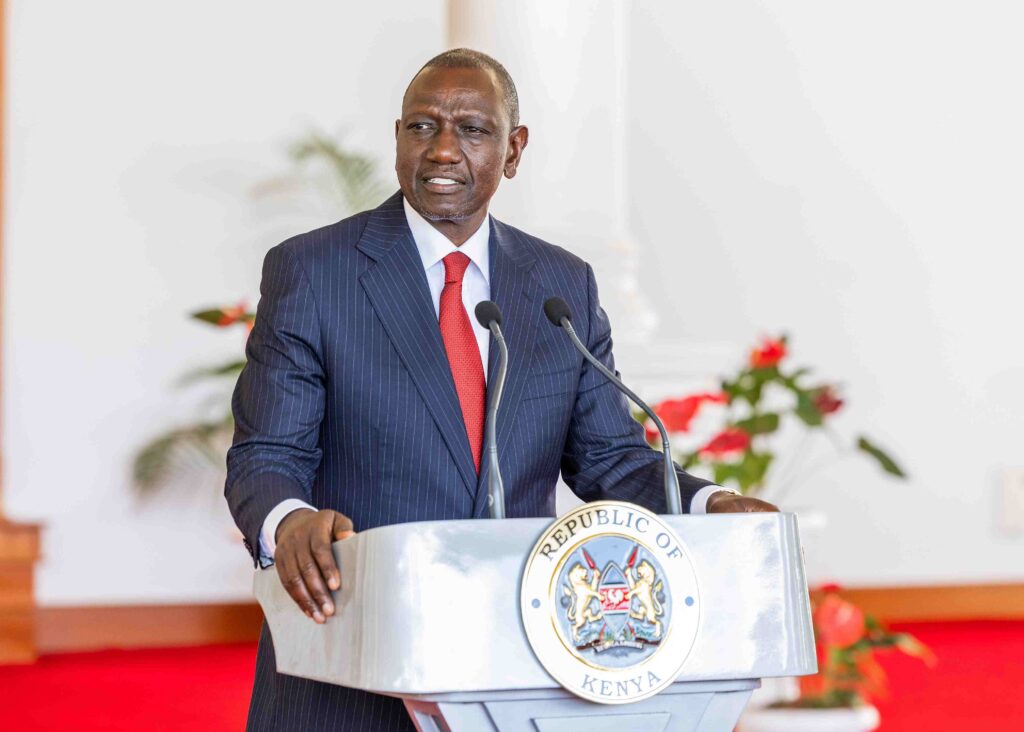As President William Ruto marked 1,000 days in office, he confidently declared that he could account for every day of his presidency, defending the difficult economic choices his administration made to stabilize Kenya’s economy. Faced with soaring inflation, a weakening shilling, and the looming threat of a sovereign debt default, Ruto insisted that his interventions were necessary and have since yielded positive results.
When Ruto took office in September 2022, Kenya’s inflation stood at 9%, the shilling traded at Sh167 against the dollar, and foreign exchange reserves could barely cover two and a half months of imports. The risk of defaulting on foreign obligations was real, forcing the government to implement tough fiscal measures, including new taxes and spending cuts.
“I had to make very difficult decisions to stop Kenya from defaulting,” Ruto said during a meeting with artists at State House. “Those decisions were not easy, but they were necessary.”
According to the President, these measures have paid off. Inflation has dropped to 3.8%, foreign exchange reserves have more than doubled from $5–6 billion to $10.3 billion, and the shilling has significantly appreciated against the dollar. Public debt, which stood at Sh8.6 trillion in 2022, has reduced, with external debt falling from Sh6.09 trillion in December 2023 to Sh5.09 trillion in January 2025.
Ruto emphasized that his administration’s focus extends beyond short-term fixes, aiming instead to lay a strong foundation for sustainable growth. “We are stabilizing the economy, restoring investor confidence, and putting Kenya back on a firm growth trajectory,” he stated.
While challenges remain, including public discontent over high taxes and living costs, Ruto remains steadfast in his commitment to fiscal discipline and structural reforms. With Kenya now ranked among the world’s fastest-growing economies, the President is optimistic about the future but only time will tell if his policies deliver lasting prosperity.

